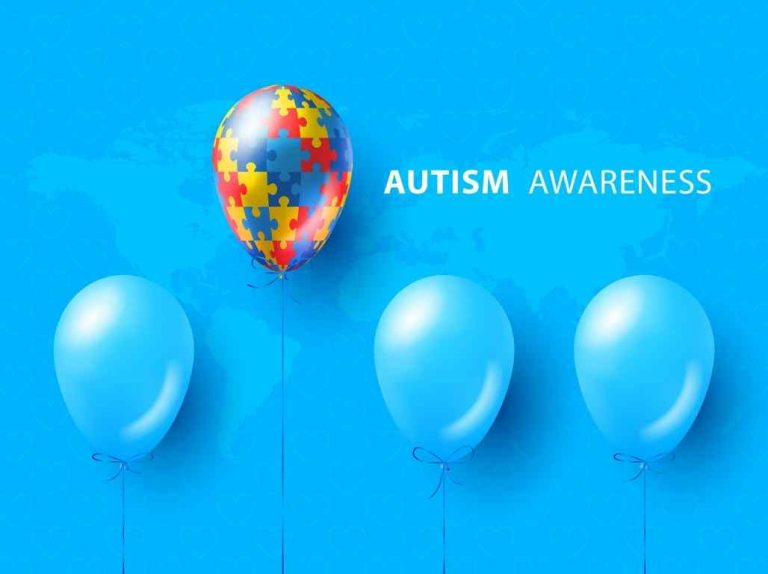Ending The Stigma Of Autism Means More People Can Get Help
Autism (ASD) is a disorder that can cause mental health issues because of the struggle to fit in. We all know someone who has a child or a family member struggling to get along in life. Mental illness affects us all because it’s all around us, and we can provide support and understanding. Suffering from any type of mental issue is challenging and can severely impact the ability for you and family members to function with day to day tasks. That’s why it’s important to get the facts and get help.
Did You Know There Are Mental Health Issues Associated With ASD
A number of mental health issues come along with the disorder, but are not always treated. In most cases, children above the age range of 4 years being diagnosed with ASD, but the emotional issues are often neglected. If your child is diagnosed with autism, your main focus may turn to altering behavior and overall physical health. And as a result, mental health conditions are often not recognized.
Mental Health And Autism Are Different
Here, we need to clarify that mental illness and any type of developmental disability such as autism are not at all the same. What is mental health. Did you know that many individuals who have ASD also suffer from mental health issues? It has been seen that compared to the general population, autistic people are more likely to suffer from anxiety and depression. When an individual with autism spectrum disorder is also diagnosed with any type of mental illness, it is called a dual diagnosis.
In most cases, once the diagnosis of ASD is made, the symptoms of mental health issues, such as depression and anxiety, lessen as a result of self-understanding and access to support and resources. Here in this article, we will talk about mental health issues and autism spectrum disorder, along with the differences they have and how they need to be diagnosed and treated.
What Are Mental Health Issues
Any type of mental illness involves changes in emotions, mood, behavior, and thinking. They are mostly associated with mental distress and also several problems with social functioning. The American Psychiatric Association has found that approximately 20% of adults in the U.S have some type of mental illness at any given time. Among different types of mental health issues, depression and anxiety are the most common ones.
What Is Autism
5 main symptoms of autism in children include:
- not responding to their name.
- avoiding eye contact.
- not smiling when you smile at them.
- getting very upset if they do not like a certain taste, smell or sound.
- repetitive movements, such as flapping their hands, flicking their fingers or rocking their body.
- not talking as much as other children.
What causes Autism? Autism spectrum disorder or ASD is the result of genetic and nongenetic or environmental influences. Individuals with autism often face problems with communication and social skills. They also have some behavioral issues and face social stigmas and misconceptions regarding autism spectrum disorder or ASD.
What Are The Mental Health Issues
It has been seen that 7 out of 10 individuals who have ASD suffer from mental issues including:
- Depression.
- Anxiety.
- OCD or obsessive-compulsive disorder.
- ADHD or Attention deficit hyperactivity disorder.
Here’s What That Means
- Individuals with autism spectrum disorder struggle in order to fit into the world or try to make sense of the world. It might lead to feelings of anxiety and depression.
- At the same time, when it comes to getting the mental health problems diagnosed, people with ASD might face delays.
- Individuals who are suffering from autism are more likely to face discrimination and stigma, as we have mentioned earlier.
- It has also been seen that people with autism are less likely to get proper support available. For example, you might know that behavioral therapy might not be suitable for a number of autistic people. On the other hand, a lot of therapists do not know how to adapt their approach when they are helping individuals who are suffering from autistic spectrum disorder or ASD.
Diet Can Help Relieve Autism Symptoms
Dr. Adams, the director of the Autism/Asperger’s Research Program at Arizona State University and President of the Autism Nutrition Research Center shares the following advice for parents who decide to try supplements for their child:
“We recommend that all children and adults with autism consider a 2-3 month trial of a vitamin/mineral supplement designed for individuals with autism that is similar to the one used in our studies. By starting at a low dose, and gradually increasing it, there is minimal risk of adverse effects, and many children and adults are likely to benefit, sometimes substantially.”
In case an individual with an autism spectrum disorder or ASD is also having mental health issues, they should take the right support via targeted therapy, neurological dietary support, and traditional medications prescribed by a doctor.
Treatment Should Include assessment and diagnosis by a doctor, often followed by referral to a therapist. The whole family might well need help and emotional support to manage the disorder. Doctors might refer to talk therapy. Here, it is always best to consider therapists who have prior experience in handling autistic patients. You might not know that the National Autistic Society of Great Britain also has a directory where you can search for therapists who are suitable for autistic people. The Autism Society in the US is the best resource to learn more.
Resources
Autism Society US
More Articles To Read
Technology In Behavioral Health Services
Silent Wounds: Stop Struggling With Childhood Trauma





















